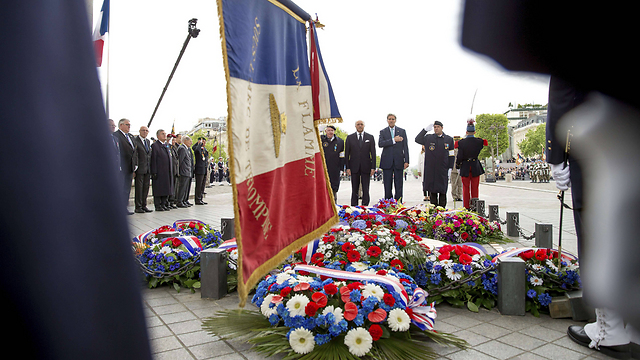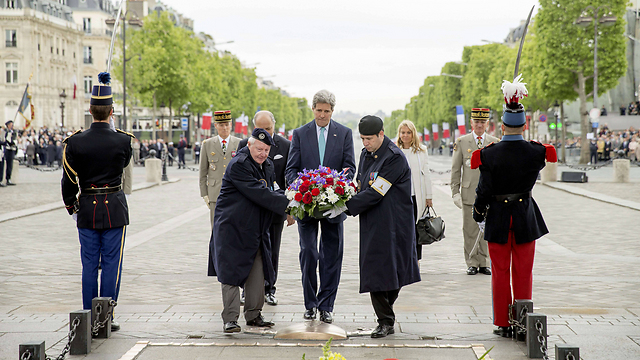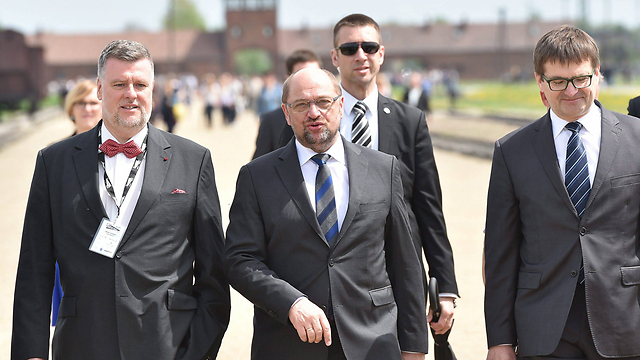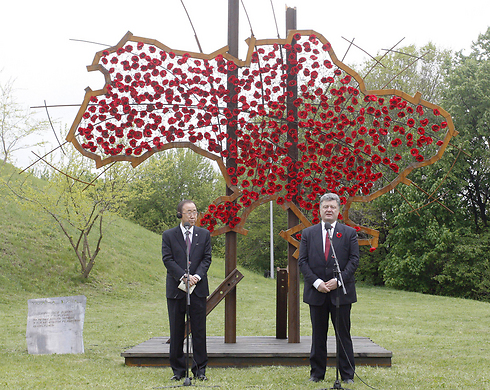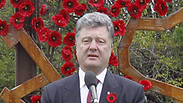
For the first time in 70 years, Ukraine on Friday joined most of Europe in marking the end of the World War Two a day ahead of Russia, which it accused of exploiting the anniversary to display its military might.
Russia is celebrating Soviet wartime feats in a ceremony Saturday that is causing diplomatic tensions because of the country's role in Ukraine's conflict. Poland has held a ceremony meant as an alternative to Moscow's.
Paris' mile-long Champs Elysees was closed to traffic to make way for a procession of official motorcades and mounted military escorts that ascended the wide boulevard from the Place de la Concorde to the Arc de Triomphe, site of France's Tomb of the Unknown Soldier.
"The victory of May 8th wasn't the supremacy, the domination, of one nation over another. It was the victory of an ideal over a totalitarian ideology," President Francois Hollande said in a speech before arriving at the giant stone arch.
US Secretary of State John Kerry and the US ambassador to France joined French Foreign Minister Laurent Fabius to lay a wreath at the tomb, in a sign of appreciation for the American role in liberating France from German occupation.
In Germany, top officials gathered at Berlin's Reichstag parliament building for an hour-long commemoration of the end of the war in Europe.
Other ceremonies took place around Europe, including in Poland, where President Bronislaw Komorowski was joined by UN Secretary General Ban Ki-Moon and the presidents of Ukraine and several Central European countries for a ceremony at the site where some of the first shots were fired by Germany against Poland at the start of the war on Sept. 1, 1939.
Ukrainian tension
Ukrainian President Petro Poroshenko had wanted to make May 8 a day of reconciliation to try not only to unite Ukrainians with different views of the war but also set them apart from Russia, which Kiev accuses of stoking a year-old pro-Russian rebellion in its eastern regions.
The issue is fraught in Ukraine, where a minority of men joined a militia that was prepared to ally itself with the Nazi invaders to fight Soviet Communist rule, leaving Ukrainian nationalism forever vulnerable to accusations of fascist sympathies.
Poroshenko has ditched the title of "Great Patriotic War", favored in Russia, in favor of "World War Two", the name used in most of Europe, as part of a reinforcement of Ukrainian national identity by the pro-Western government following the ousting of the Moscow-backed Viktor Yanukovich last year.
Russia denies allegations, for which Ukraine and the Western NATO alliance say they have evidence, that it has sent troops and weapons to back the separatist uprising, in which over 6,100 have been killed.
Most of the 3.5 million Ukrainian soldiers killed in World War Two died fighting for the Soviet Red Army, but Prime Minister Arseny Yatseniuk said Soviet forces shared responsibility with the Germans for the deaths of a further 4 million civilians across Ukraine.
"Black ploughs of death crossed our lands from the west to the east and from the east to the west," he said in a speech on Friday.
Yet some Ukrainians fear that associating the struggle in World War Two with today's struggle against Russia will deepen the splits in a divided population.
Reuters and the Associated Press contributed to this report.













